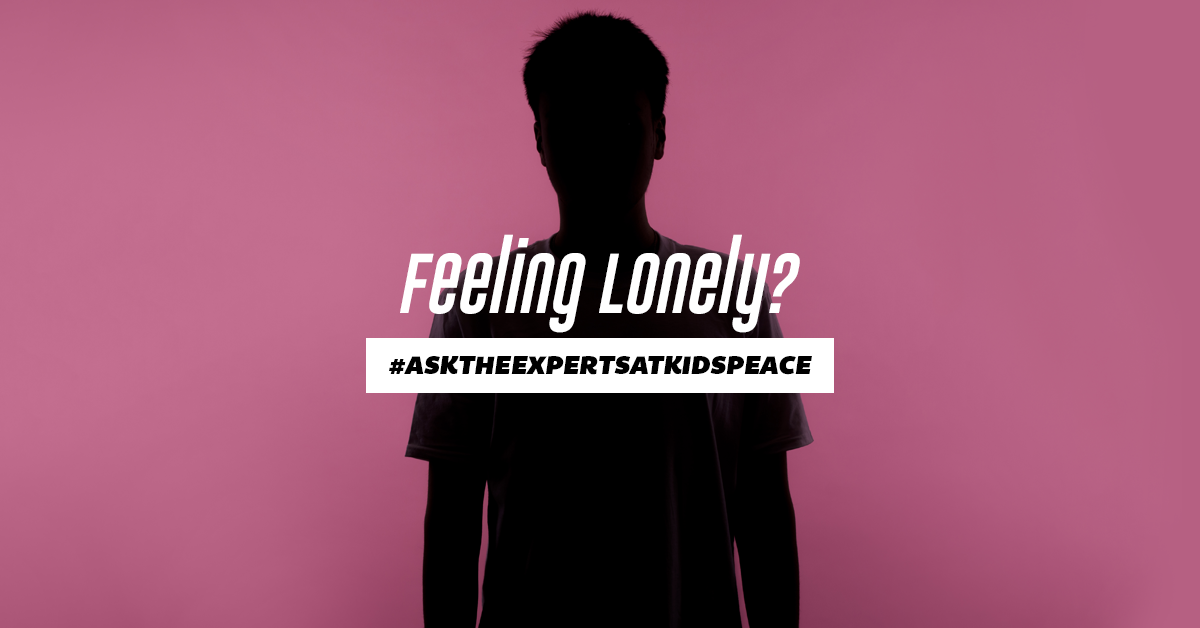
We all have times when we feel alone and lonely. But when does loneliness become a matter for concern, and then what can we do about it? KidsPeace clinician Jessica Keefe says it’s important to start by noting how the COVID-19 pandemic might have sparked the loneliness you feel right now:
As COVID 19 took over the world in 2020, we were forced to retreat to our homes. For some, this meant welcomed time spent in the slow lane with family, friends, or a good book. For others, this meant the beginning of forced isolation. Showers were largely optional, haircuts were done by family members (or not at all), and pajamas became our constant uniform. While certainly amusing on some levels, these circumstances created a perfect environment for a level of loneliness many people had never experienced to set in. Isolation, office shutdowns, and remote work settings fostered this loneliness for so many – including those who maybe were dealing with loneliness long before COVID hit.
Regardless of loneliness being pre- or post-pandemic – the question remains: what now?
First, let’s identify signs that we may be lonely:
- Sadness
- Emptiness
- Isolation
- Inability to identify close friends/family
- Lack of motivation
Now what? We have suspicions that we may be not just lonely, but TOO lonely. So what do we do? We TAKE ACTION. That allows you to take control over the situation, which already increases confidence and self-esteem and reduces anxiety.
Increasing social interactions can increase connectedness and a sense of belonging. Here are a few tips to help reduce loneliness.
- Join a social group. There are many social groups that communities run, including sports groups (softball, corn hole, kickball), cultural clubs (Puerto Rican Beneficial Society, Portuguese American Club), theater or other artistic groups, etc.
- Call an old friend. Push away the negative thoughts that have been keeping you from reconnecting with someone, and give them a ring.
- Attend a meeting. Many communities have township, school board, and/or planning meetings.
- Connect online. I hesitate to suggest this, because it can come with its own set of hazards; you have to be mindful of negativity online, phishing, and other ill-intended people. That said, there are many forums and areas on sites like Discord created for all interests. This could be a good way to connect with others who have similar interests (TV shows, music, etc.).
- Take up a new hobby. Investing time and energy into learning something new keeps our minds busy, challenges us, and increases agency.
- Take a vacation. Whether with someone else or alone, the act of changing one’s scenery, engaging with others, and experiencing something new can improve our sense of loneliness and emptiness.
- Get your hair done, shave, or get a manicure. By scheduling an appointment at a public place, you are increasing your opportunity to socialize with others.
Whatever action you chose, SET A GOAL. By setting a goal, you make it possible to see tangible evidence of the success of your actions. Set a goal to talk to someone new, join a group, try a new activity, or anything. Hold yourself accountable in actually taking those actions, and then take a moment to pause and feel good about it when your goals are achieved. By SETTING GOALS and ACTING to achieve those goals, you can overcome your loneliness, one step at a time.



